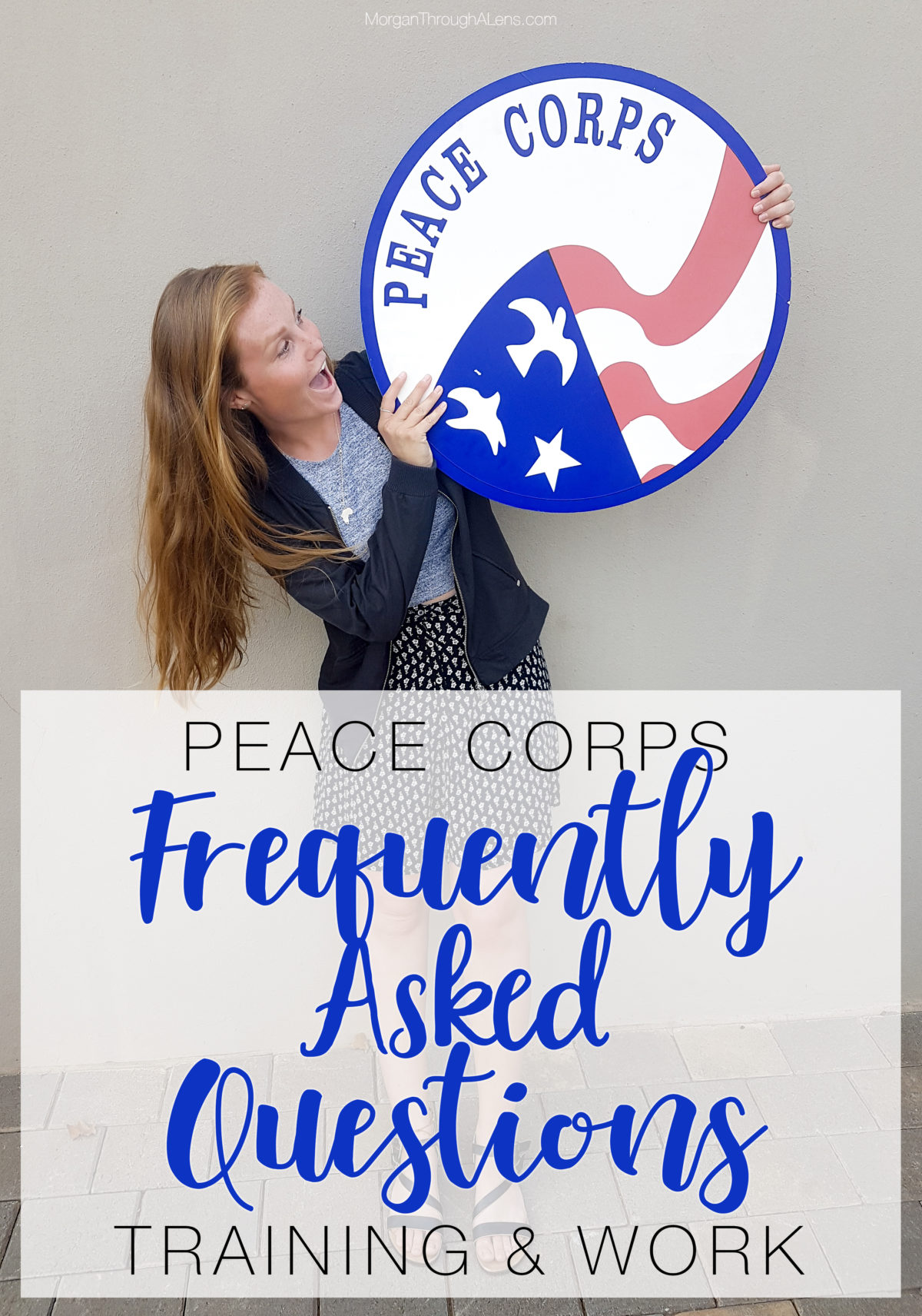Peace Corps FAQ // Training & Work
The second in a four-part series answering your questions about Peace Corps.
Part 1: Applying to Peace Corps
Part 2: Training & Work
Part 3: Life in Peace Corps
Part 4: Everything else
I compiled the most common questions from my blog and YouTube comments, emails, etc. but if you want to know something that I haven’t addressed here, or have a question for another part, leave it in the comment section!
Disclaimer: I can only speak to Peace Corps South Africa and my service specifically. Every PCV has a different experience whether in different countries or the same. If you are interested in joining PC, talk to as many people as you can to get an accurate picture of Peace Corps work.
How long is training and where do volunteers train?
Training is about 10-weeks and all training is in your country of service (aside from a two-day workshop in the States right before you fly out).
What type of work do volunteers do?
Volunteers work in six different sectors: Agriculture, Environment, Community Economic Development, Health, Education, and Youth in Development. However, the work in each sector can vary immensely. Within the health sector, you can work in Malaria prevention, HIV outreach, prenatal health, etc. depending on the needs of the host community. I was in the health sector, specifically the Community HIV Outreach Program, and I was placed at a centre for orphans and vulnerable children. Volunteers work at local host organizations because our goal is to empower the community and help them grow what they’ve already started.
Can I do projects outside of my sector?
Of course! In fact, Peace Corps recommends it. I worked in the health sector but one of my favorite projects was teaching literacy to preschoolers.
How do volunteers track and report their projects at site?
PCVs report their projects to PC on a quarterly basis (every three months) in the form of the Volunteer Reporting Form (VRF). Every Peace Corps program has a list of goals and objectives to guide your work. Primary projects need to meet at least one of the goals (secondary projects are more flexible) and extensive monitoring and evaluation is performed to see if those goals are met. PC teaches volunteers all about the VRF during training.
Can I extend my Peace Corps service an additional year?
Yes! But the process differs a lot between countries. In South Africa, you send in a general application stating that you are interested in extending, and then Peace Corps staff works to find an organization willing to host you. Most countries also have a third-year PCVL (Peace Corps Volunteer Leader) who is in charge of “mentoring” the newest group of volunteers. And of course, you can extend in your current village if you want to continue projects you’ve been working on.
Do I need to be fluent in a second language?
If you want to serve in a Latin American country you need to be fluent (or near-fluent) in Spanish. Some countries require a basic knowledge of the native language when applying. Otherwise, PC teaches you the local language during training (not many Americans learn Setswana in high school).
How long has Peace Corps been in South Africa?
Since 1997
What is Peace Corps Response?
Response is a shortened version of Peace Corps (6-12ish months). Usually reserved for Returned Peace Corps Volunteers or people with a lot of experience in the field, these are short-term, high-impact assignments. Response volunteers are also the first to serve in a newly opened PC country to help prepare for two-year volunteers. Response positions are less common than traditional Peace Corps positions.

Do you have any other questions about Peace Corps training and work? Let me know in the comments!

